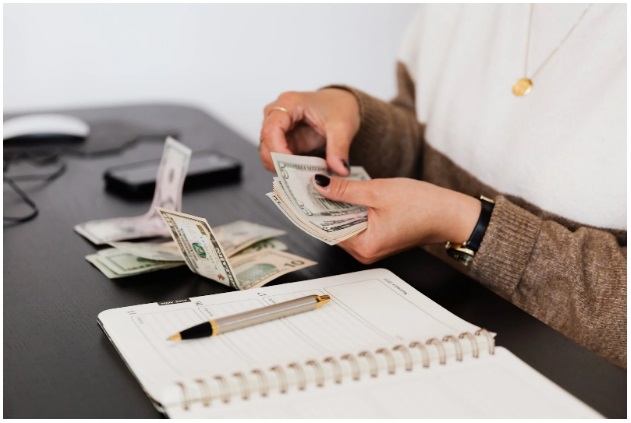6 Ways To Track Your Spending
Those who have been left with limited resources have had to find new and innovative ways to deal with the many restrictions imposed. How can we monitor our finances to ensure we have enough to pay all the necessary bills and save a little for a rainy, hopefully, Covid free day?

Budget
Firstly, creating a budget to highlight exactly how much money you have coming in and going out will help you identify exactly what you are currently spending your money on. If you're self-employed, you are required to keep records of all income and expenditure for tax purposes. This can be labor intensive if you don't keep records up to date. There are various ways you can track spending using automatic data collection apps that analyze your bank statements. It is also a good way of identifying tax-deductible expenses to ensure you don't pay more tax than you need to, thus freeing up money for other things.
One of the benefits of creating a budget is that it can help you recognize any bad spending patterns and take steps to change them. When we realize there may be ways to cut down our spending in certain areas, it can motivate us to start putting money aside for something we want, instead of using credit cards or loans.
Spreadsheets
Creating a spreadsheet with all income and expenditure may sound time-consuming, but it can be an effective way to get a clear picture of your financial situation. Using Excel may seem complicated, but it's actually very useful as you can input a formula that will automatically update when you fill in data. It's great for imposing spending limits with the options to add, subtract and divide when required.
The old fashioned method
If the thought of using an app makes you go weak at the knees, then the ancient method of using a pen and paper to track your spending can work just as well. As a test, try writing down every time you purchase something online or in a shop. Record it, even if it is cash. At the end of the week, analyze your findings. You will probably find things on your list that are not essential and can be eliminated or reduced. Adding up all the non-essential spending may help you see where you can change your spending habits and be a little more mindful of where your money is going.
Consider keeping receipts. This is a good way of having paper evidence of purchases. You can group them into categories and tick them off your notebook, so you don't accidentally miss anything.
Set a goal
Setting a financial goal, or saving for something special, can be an added incentive for tracking spending. Whether it's a holiday plan for when the world situation has improved, or purchase for the home, setting a goal will motivate you to make the necessary adjustments. When you decide to start saving, dedicate a proportion of your wages each month to the saving pot. Once you see your savings grow, you are more likely to stick to your objective and continue tracking your spending.
Cutting certain spending habits and substituting them with more sensible ones, does not mean you can't enjoy life now. Finding ways to have fun still whilst being thrifty is not impossible. Staying focused on long term goals will help us be content now and give us something to look forward to. It also takes away a lot of financial stress if we know we have some pennies in an emergency.

When we realize our goal, we can be happy that we are not in debt, making our purchase more enjoyable.
Use debit cards
As tempting as it may be to use cash to track spending accurately, it's actually best to make it a habit to use a debit card. That way, you can always check online statements or use internet banking to track your purchases. This makes it easier to budget, and can also be linked to tracking apps designed to organize your finances. Using a debit card reduces the temptation to spend money because the cash is available in your wallet.
Be honest
When trying to regain some control over your spending habits, it is wise to be self-reflective. If you find that your Starbucks coffee or expensive taxi rides are out of proportion with your earnings and inhibit your ability to save, it may be time to ditch them for a cheaper option. Being honest about the things you really need can help immensely to make changes to the way you approach your finances.
So, whatever your reason for wanting to start tracking your spending habits, there are various options. Finding ways to save money by limiting frivolous spending is a great way to regain control of your financial situation. Having the ability to control money is empowering and can open up many opportunities in the future. Happy saving.